
Mark Bustos


Yuan Longping, the "Father of Hybrid Rice," Dies at 90; Here's How He Changed the World
Five New Listeria Species Discovered, Could Help Improve Food Safety

Superfast DNA Sequencing Tech Lands Finnish "Nobel" Victory to Two British Chemists

Even the Slightest Alcohol Consumption Harms the Brain, New Study Shows

Newly-Found Connection Between Culture and Biodiversity Could Help Wildlife, Indigenous Populations Survive
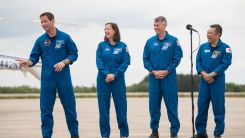
LOOK: French Astronaut Shares Stunning Space Images Taken from ISS
Planktons Study Offer Insights to Prevent Future Pandemics, Boost Hoost Immunity
Atomically Thin Materials Could Extend Moore's Law As New Transistors

Virus-Resistant Tomatoes: TomaTech Cracks Code Against ToBRFV

WELTEC BIOPOWER RNG to Cut Down Carbon Emissions of Spanish Dairy Cattle Farm
Cultivated Meat is the Future: New Study Shows Younger Generations More Open to Eating Lab-Grown Food
Rocket Lab Electron Launch Fails, Losing Spaceflight Inc. and BlackSky Payloads
Neanderthals vs Homo Sapiens: How Creativity Determined Extinction and Survival
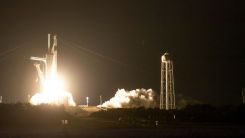
SpaceX Launches New Batch of Starlink Satellites Plus Two Payloads; Here's How to Watch

Fast Deterioration of Concrete and Asphalt Finally Uncovered in New Study
3D Printing Can Now Create Precise and Complex Microlenses
Crystal Defects at the Nanoscale Could Lead to Better Energy Storage Devices
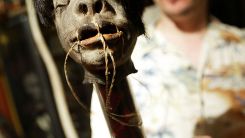
Shrunken Head Rediscovered, Returned to Ecuador; Believed to be Slain Enemies with Skulls Removed
NASA OSIRIS-REx Returning to Earth With Asteroid Samples
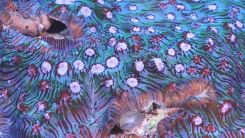
Ashmore Reef Marine Park in Australia Navigated, Mapped in Landmark Study

Near Infrared Light Directed Into the Ear Aids Against Hearing Loss

Remains of 9 Neanderthals Found Near Rome, Offering Insights on Prehistoric Population

Chernobyl Apple Spirit Drinks Confiscated in Ukraine, Why Are They Not Safe for Consumption
Ivermectin COVID Studies Suggests Anti-Parasitic Drug Is the Cure to Coronavirus, Possibly Ending Pandemic
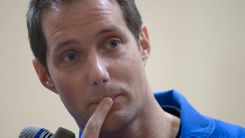
Coldplay Releases New Song to the Galaxy Thru a Video Call With an Astronaut

Modern Human Lifestyle a "Perfect Storm" for Pandemics Like COVID
Pint-Sized Dinosaur from Mongolia Has Eye Vision Like an Owl at Night
New Magnetic Material Breaks Previous Records on Switching Speeds
Ecosystem Engineers: Oldest Evidence to Date of Humans Changing Entire Ecosystems with Fire
Most Popular

Orionids Meteor Shower Happening Next Week: Where and When To Catch the October Light Show's Peak

Texas Official Shot Down Siren Flood Alert, Complaining That It Might Go Off 'In the Middle of the Night': Report

Nvidia's Jetson Thor Could Make Humanoids Smarter Than Ever

Hellfire Missile Video Reveals MQ-9 Reapers Being Used for Aerial Combat




